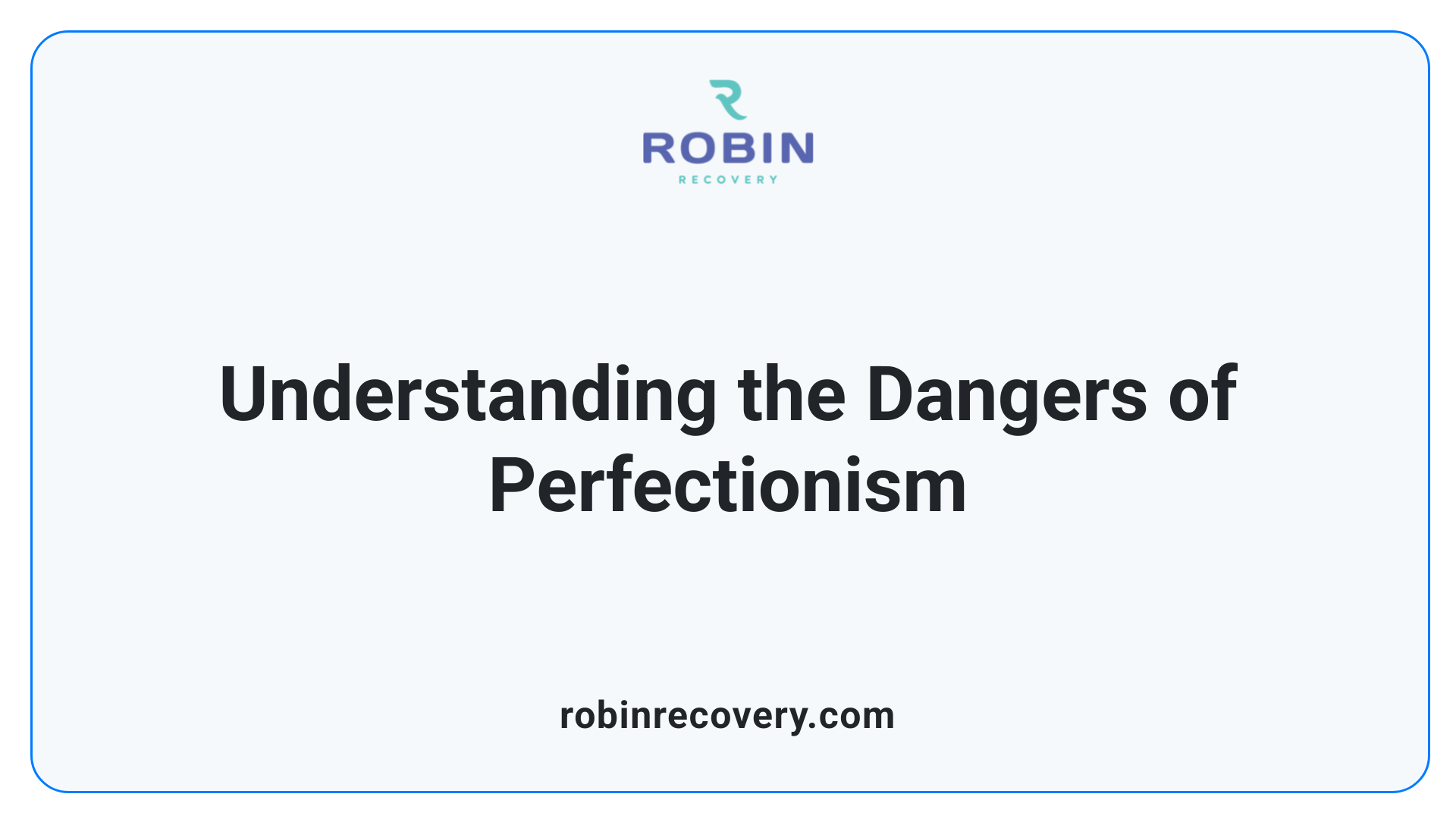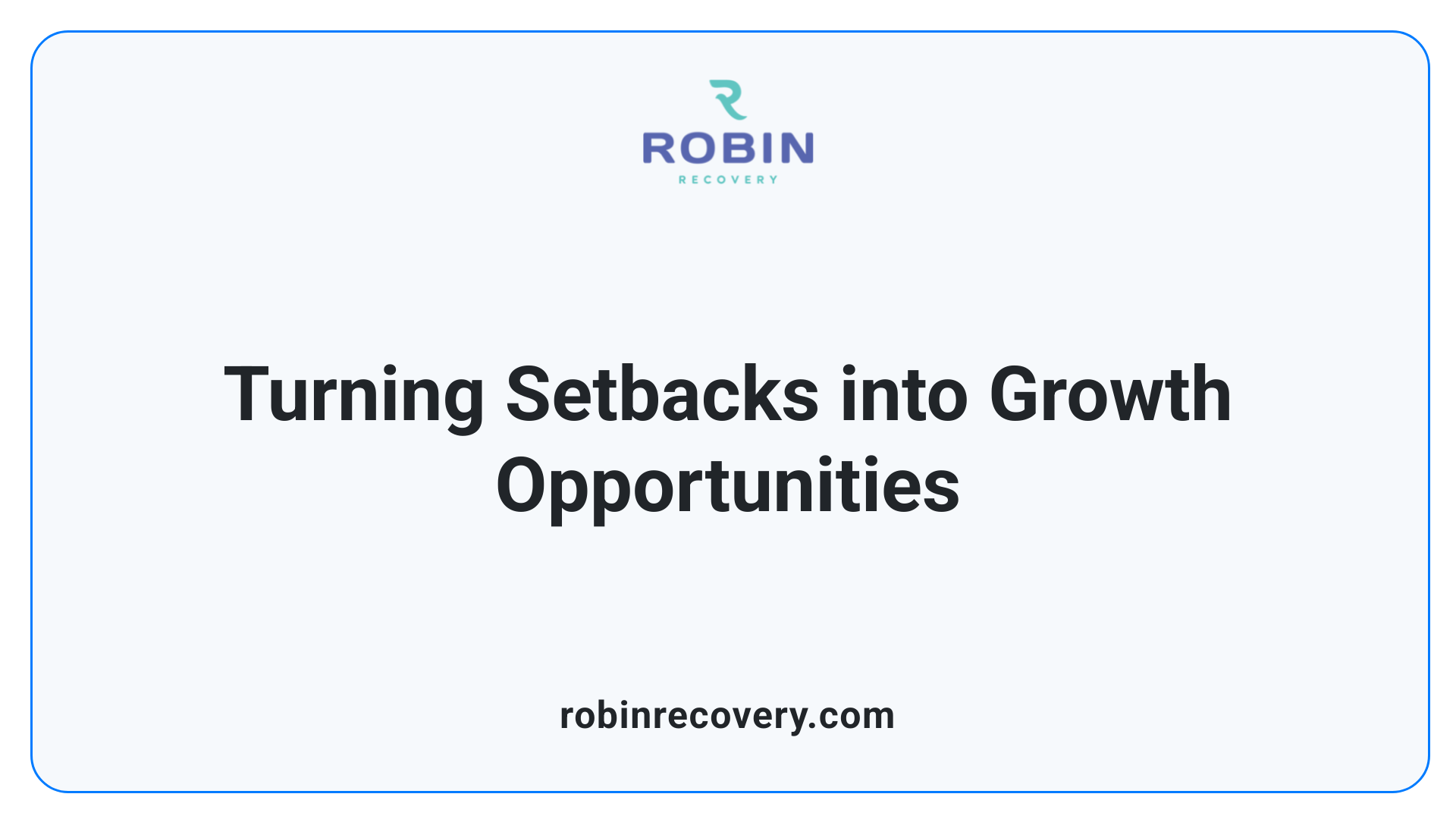How to focus on progress rather than perfection in treatment

Introduction: The Mindset Shift
Perfectionism is more than just a personality trait; it's a debilitating mindset that can obstruct personal growth, leading to chronic dissatisfaction and anxiety. This article sheds light on how shifting the focus from perfection to progress can spark a healthier approach towards treatment and recovery.
The Pitfalls of Perfectionism in Treatment

Understand the negative impacts of perfectionism on mental health and personal growth
Perfectionism often acts as a double-edged sword in the journey towards recovery and personal development. While striving for high standards can provide some motivation, overly demanding expectations can lead to anxiety, self-doubt, and feelings of failure.
When individuals equate setbacks with failure, they may feel discouraged and abandon their goals altogether. For instance, a person recovering from substance use might view a relapse as a complete personal failure rather than an opportunity for learning and growth. Such a mindset can reinforce negative self-talk and divert attention from the small, yet significant, accomplishments achieved along the way.
Discuss the unrealistic nature of perfectionism
The pursuit of perfection is not only unrealistic but often detrimental. Perfection is an illusion; no one can excel at every task perfectly. This unattainable standard creates an environment of frustration and disappointment. For example, when people set strict "all-or-nothing" resolutions, any deviation from the plan can taint their sense of progress.
On the contrary, the mantra "Progress, Not Perfection" emphasizes the importance of celebrating small victories, recognizing that each step forward, no matter how minor, contributes to overall personal growth and satisfaction.
By shifting focus towards progress, individuals can foster a more supportive framework for success that embraces mistakes and learning as part of the journey in treatment and beyond.
Unlocking Progress: Key Strategies

How do you focus on progress instead of perfection?
Focusing on progress instead of perfection begins with breaking your larger goals into smaller, manageable steps. This approach allows you to track your progress without feeling overwhelmed by the end goal. Each small step becomes a milestone to celebrate, reinforcing positive behavior and motivation to move forward.
Embracing mistakes as valuable learning opportunities is crucial. This fosters a growth mindset that recognizes resilience as part of the journey. When setbacks occur, ask yourself, "What’s the next right move?" This question reorients your focus and encourages you to continue making progress.
Reframing negative thoughts positively can be particularly effective in combating perfectionism. Instead of viewing setbacks as failures, see them as experiences that contribute to your growth. Recognizing that perfection is an illusion can help keep anxiety at bay and spur action rather than procrastination.
Setting Realistic and Achievable Goals
Setting SMART goals is another great strategy. Making goals Specific, Measurable, Attainable, Realistic, and Time-bound allows for a clear plan that encourages progress. This method ensures that you are not chasing an unattainable ideal but rather engaging in efforts that resonate with your values and aspirations.
It's also important to celebrate even the smallest achievements along your journey. Acknowledging every step taken fosters satisfaction and confidence, making the path toward larger objectives feel more achievable. Small victories can act as powerful motivators, reinforcing your commitment to the process rather than fixating solely on the end result.
Goal Setting: Progress Over Perfection

What should you aim for instead of perfection?
Instead of aiming for perfection, focus on setting achievable goals that encourage growth and development. Embrace the idea of progress, which allows you to learn from mistakes and adapt along the way. This mindset not only fosters resilience but also promotes a healthier perspective on your journey toward success.
Celebrating small victories is crucial. Each step forward, no matter how minor, contributes significantly to your overall development. When setbacks occur, remember to pause and reflect on your experiences, allowing you to regain focus and clarity on what’s next.
Importance of realistic goal setting
Setting realistic goals is essential in maintaining motivation and tracking progress. The process of striving for an ideal can lead to discouragement, making it vital to acknowledge each advancement along the way. Goals should be manageable, breaking larger objectives into smaller, more attainable steps. This reduces feelings of overwhelm and enhances satisfaction.
Use of SMART goals in personal development
A great approach to ensure your goals are effective is to use the SMART criteria:
CriteriaDescriptionExample Specific Define a clear and specific goal. Increase daily walking steps. Measurable Ensure that you can track your progress. Track steps with a fitness app. Attainable Set goals that are realistic and achievable. Walk for 15 minutes daily. Realistic Goals should align with your lifestyle and current circumstances. Adjust based on current activity. Time-bound Set deadlines to ensure accountability. Complete this within 4 weeks.
Employing SMART goals enhances your ability to make sustainable changes and fosters continued motivation in your journey towards health and well-being. Remember, the pursuit of progress—over perfection—revolutionizes how you approach your personal goals.
Navigating Setbacks with a Progress Mindset

What Role Do Setbacks Play in Personal Development?
Setbacks are not the end of the road; rather, they are integral to personal development. Every obstacle encountered offers the chance to reevaluate strategies, learn from experiences, and deepen one’s resilience. It’s essential to understand that setbacks are normal and often signify a learning opportunity, pushing individuals to innovate or adapt their approaches. Thomas Edison, for instance, experienced over 1,000 failures before achieving success with the light bulb, exemplifying how persistence through setbacks can lead to remarkable outcomes.
How Can We Reframe Setbacks as Opportunities for Growth?
Reframing setbacks involves shifting the perception from failure to potential learning experiences. Here are some effective strategies:
- Pause and Reflect: Take time to consider what went wrong and what lessons can be taken from the experience. This reflection fosters personal insight.
- Ask the Right Questions: In moments of frustration, consider asking yourself, "What’s the next right move?" This helps redirect thoughts toward progressive action rather than dwelling on negatives.
- Celebrate Small Victories: Acknowledge even minor achievements throughout the journey. This practice reinforces motivation and enhances commitment by making progress tangible.
- Embrace Mistakes: Accept that mistakes are part of being human. Recognizing them allows for growth and improvement rather than fear of failure.
By adopting this growth mindset, individuals can navigate through setbacks with optimism and a focus on progress.
The Joy of Small Wins

Celebrating Incremental Achievements
Recognizing and celebrating small wins can be a powerful motivator. By focusing on incremental achievements, individuals shift their perspective from what they have yet to accomplish to what they’ve already achieved. This positive reinforcement encourages further efforts and fosters a sense of satisfaction and self-worth.
For instance, writing down weekly accomplishments—no matter how minor—can greatly help maintain motivation. This practice reinforces the notion that progress, however small, is significant in the grand scope of personal goals.
Building Sustainable Habits Through Progress-Oriented Thinking
Progress-oriented thinking supports sustainable habits by breaking larger goals into manageable steps. Goals are less daunting and more achievable when approached incrementally.
Comparison of Goal Strategies
Strategy Focus Outcome Perfectionism Ideal outcome Leads to frustration and low motivation Progress-oriented approach Smaller, measurable wins Builds confidence and sustains effort
When individuals embrace the mantra of "progress, not perfection," they learn to appreciate the journey rather than fixate on an elusive end goal. This mindset alleviates the pressure of unrealistic standards, resulting in a healthier, more fulfilling approach to achieving personal success.
Conclusion: A Progress-Driven Journey
Adopting a progress-focused mindset, especially in the context of treatment or personal development, is transformative. It breeds resilience, nourishes patience, and fosters an attitude ripe for growth. Letting go of perfectionism allows you to thrive in the journey, making the path to overall well-being more fulfilling and sustainable. Celebrate every step, learn from every stumble, and continue to pursue a better version of yourself one day at a time.
References
- How to start focusing on progress not perfection - The Vector Impact
- Focus on progress, not perfection - Mosaic Life Care
- Focus on progress, not perfection - Mosaic Life Care
- 6 Tactics to Help You Aim For Progress—Not Perfection | Shine
- Seek Progress, Not Perfection - Penn State Extension
- How to Focus on Progress Instead of Perfection
- Progress Not Perfection: Seeking Recovery as a Daily Journey
- Think Progress, Not Perfection: Strategies to Increase Your Capacity
- Progress Not Perfection: 10 Ways to Focus On Progression - wikiHow
- Progress, Not Perfection: A Mantra to Get Sh*t Done - Marie Forleo
